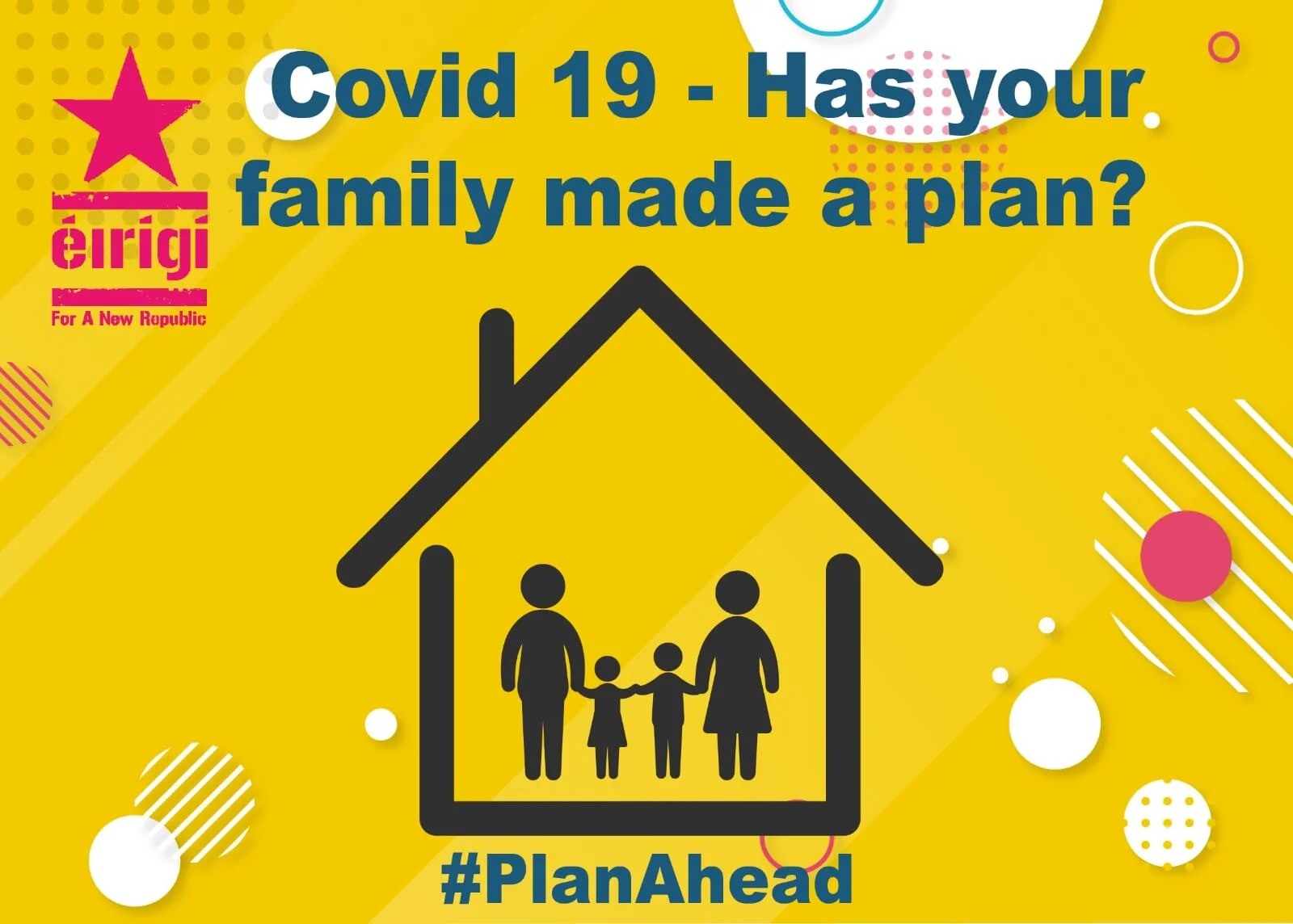Over the course of the last three weeks, life in Ireland has been changed beyond all recognition by Covid-19. From Kerry to Antrim and Wexford to Donegal, almost seven million people are now living in an unprecedented lock-down as we collectively act to slow the spread of the deadly pathogen.
The additional restrictions that were introduced over the weekend came against a backdrop of increasing community-based transmission of Covid-19 in Ireland. We know from China, Italy and Spain that even a relatively short period of unchecked community transmission will lead to disastrous results.
We also know from these countries that lock-downs which are designed to drive Covid-19 transmission from the community will inevitably lead to further transmissions within homes.
The current stay-at-home orders, which are absolutely necessary, provide Covid-19 with an ideal opportunity to transmit from one family member to another. Transmissions within the home pose particular dangers to large inter-generational households, of which there are many in Ireland.
Transmission within the home is made all the easier by the fact that a very high percentage of people who are infected will display no symptoms while still transmitting the virus to others. Those who are younger and healthier can thus infect those who are older and weaker without ever realising they have done so.
Under the current guidelines, people who are exhibiting Covid-19-like symptoms are strongly advised to self-isolate within their own household and contact their GP. Unless their conditions deteriorates to the point where breathing becomes difficult, they will remain in self-isolation for the duration of their illness.
Thousands of people will exhibit Covid-19-like symptoms in households all over Ireland during the current lock-down. Will your household be one them? And if so, have you made a plan to deal with such a scenario? If you don’t have a plan already, make one today.
What room are you going to use to isolate the sick family member?
Who is going to act as their primary carer?
Have you got any personal protection equipment such as gloves, masks and goggles, or can you improvise some from household items?
The Health Service Executive website provides the following guidelines for those who are trying to care for a member of their household who is self-isolating because they have been confirmed to have Covid-19 or are exhibiting Covid-19-like symptoms:
stay away from them as much as possible (at least 2 metres) and avoid touching them - use your phone to communicate
wash your hands properly every time you have contact with the person
if you have face masks, wear one and have them wear one when you have to be in the same room
if you have to clean phlegm or spit from their face use a clean tissue, put it into a waste bag and wash your hands
put them in a well-ventilated room alone
limit their movement in the house
get them to use a different toilet if possible
limit the number of caregivers
keep them away from older people, people with long-term conditions or pregnant women
If possible, only one person should look after the person self-isolating. Ideally, this would be someone who is in good health.
You can access more information about Covid-19 at a new Health Service Executive website.
Don’t wait until someone in your family starts displaying Covid-19-like symptoms. Mark your family plan today.


